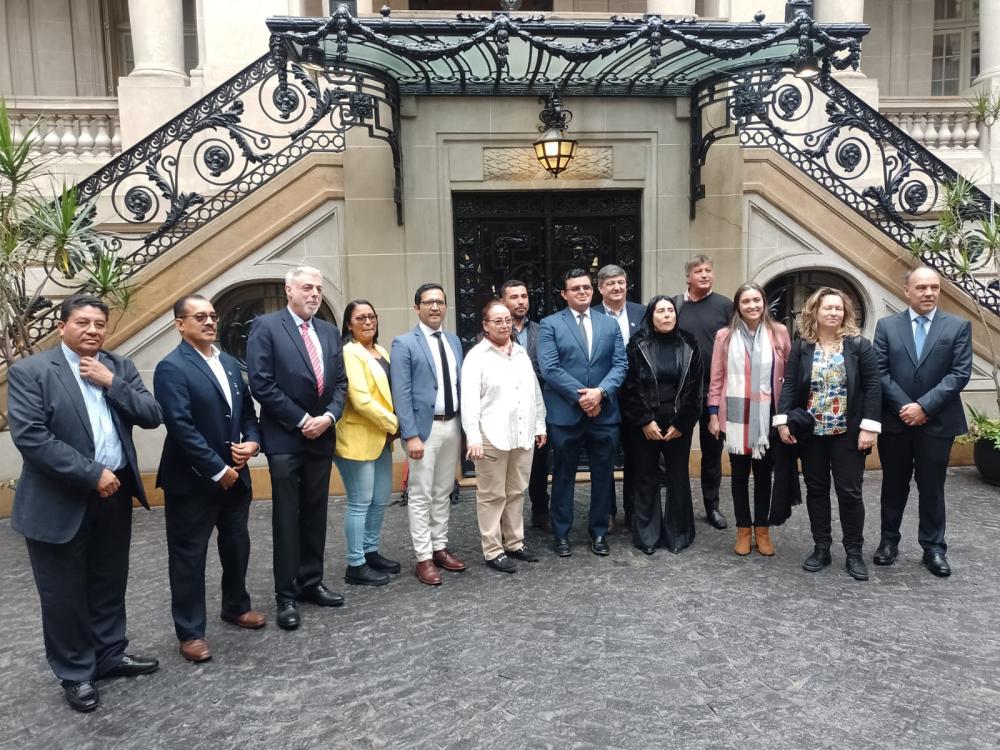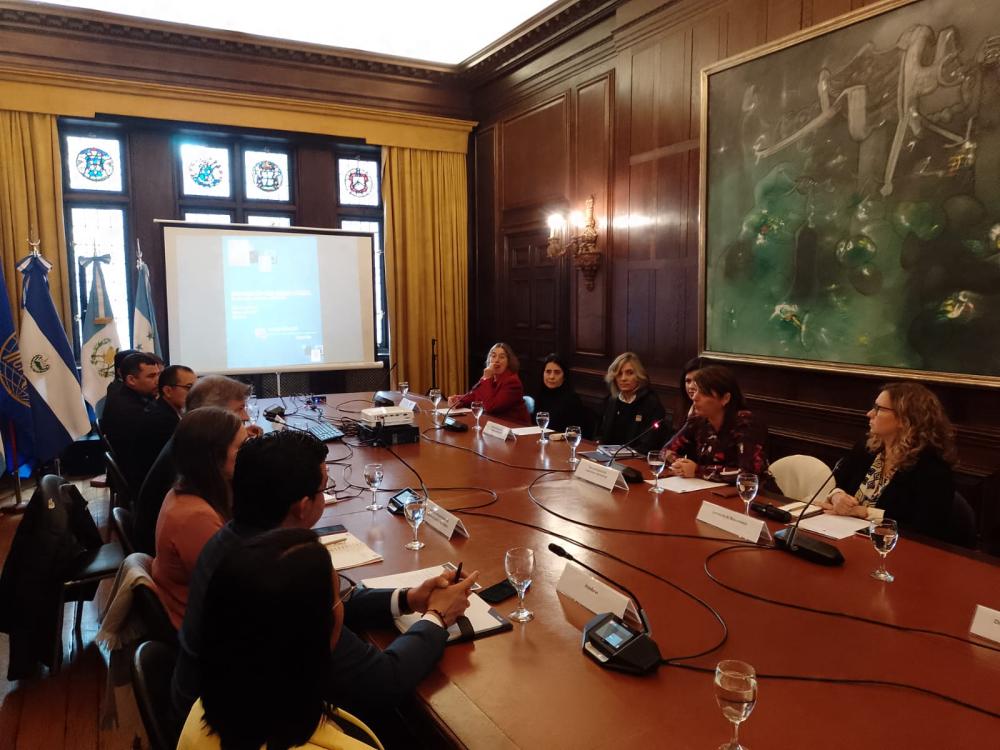Technical mission from El Salvador, Guatemala and Honduras visited Argentina to learn about dairy sector's best production practices, as part of an IICA-coordinated cooperation project to strengthen food security in the Central American Dry Corridor

Buenos Aires, 19 June 2024 (IICA) – A technical mission from El Salvador, Guatemala, and Honduras visited Argentina and toured various productive and industrial dairy sector enterprises in the countryside as part of a South-South and Triangular Cooperation project aimed at strengthening and providing resilience to small farmers in the so-called Northern Triangle of Central America.
The initiative was coordinated by the Inter-American Institute for Cooperation on Agriculture (IICA) and carried out by technical experts from the Secretariat of Bioeconomy and the National Institute of Agricultural Technology (INTA). The General Directorate of International Cooperation (DGCIN) of the Ministry of Foreign Affairs is leading the project, which is implemented through the Argentine Fund for International Cooperation (FO.AR).
A memorandum of understanding between the Ministry of Foreign Affairs, International Trade and Worship of Argentina and the Director General of IICA, Manuel Otero, reaffirmed this joint endeavor, which had previously included a series of seminars and workshops conducted virtually, focusing on the productive and commercial ventures of small dairy farmers in Argentina and Central American countries, their opportunities, and challenges.
The premise of the project is to share good practices developed in the agricultural sector of Argentina, a leading food producer and exporter. This experience is crucial because the Northern Triangle of Central America is a vulnerable area from a food security perspective, affected by increasingly frequent extreme weather events caused by climate change.
The visit
The visitors toured the Argentine provinces of Entre Ríos and Santa Fe, where they visited small-scale dairy farms and public-private ventures for dairy product packaging working to reduce greenhouse gas (GHG) emissions and manage waste, as well as industrial processing plants and agricultural schools.
The San Martín Palace in Buenos Aires, the seat of the Argentine Foreign Ministry, was the venue for a meeting that marked the beginning of the mission, attended by the visitors along with IICA authorities and officials from the Secretariat of Bioeconomy, INTA, and the Argentine Ministry of Foreign Affairs.

“When experiences and knowledge aimed at strengthening food production and small farmers are shared, it is done from the heart. Latin America, in addition to being a region of peace, is a major food provider for the world,” highlighted José Angel Acosta Zavala, the Vice Minister of Livestock of Honduras, who headed his country's delegation.
“We all win with this project, which will allow us to produce more healthy food, combat malnutrition, and address a crucial need,” expressed Héctor Espinoza Farfán, the Ambassador of Guatemala to Argentina.
For her part, María Florencia Segura, Director of Bilateral Cooperation of the Argentine Foreign Ministry, thanked IICA for its support and pointed out that South-South Cooperation projects “not only serve to transmit experiences and knowledge but also to foster solidarity among countries in the region.”
The meeting was attended by technical experts Carolina Pivetta and Tomás Krotsch from the IICA Delegation in Argentina, as well as Helmer Esquivel from the Delegation in El Salvador, who underscored the Institute's firm belief in the importance of South-South and Triangular Cooperation to promote rural development, as demonstrated by other successfully completed projects.
In recent years, IICA has participated as coordinator of Argentine initiatives aimed at transferring knowledge to producers in Caribbean countries. The API-Caribe project served to strengthen the beekeeping industry and increase hive productivity in Barbados, Dominica, Saint Lucia, and Saint Kitts and Nevis. Additionally, in 2016, INTA launched the Pro Huerta Program in Haiti, aiming to strengthen the capacities of small farmers to promote agroecological production and access to healthy products for adequate nutrition.
More information:
Institutional Communication Division.
comunicacion.institucional@iica.int